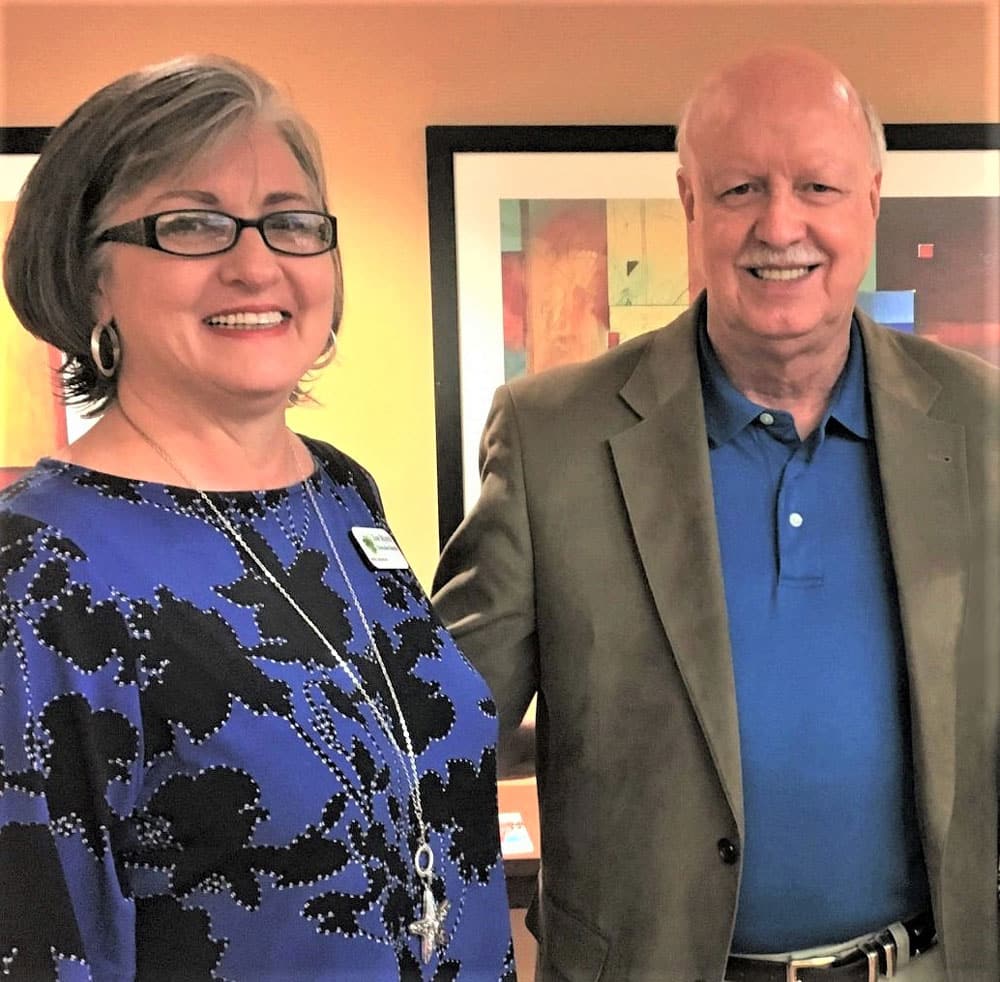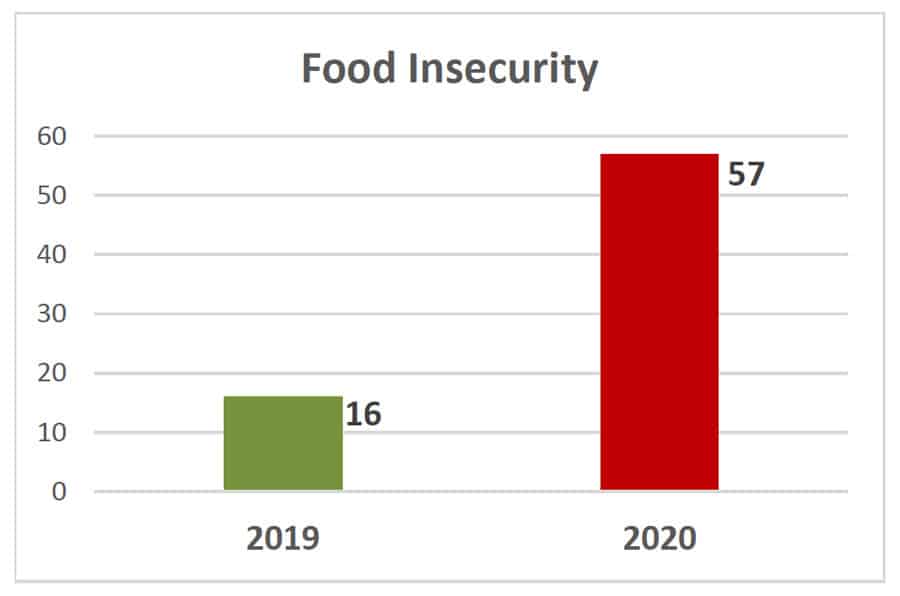Cook County Family Connection Publishes Study on Pandemic Impacts
Print This Post
Cook County Family Connection Executive Director Zoe Myers and Chet Ballard, Ph.D., of Valdosta State University
Cook County Family Connection was one of 17 organizations across the U.S. to receive research funding from Robert Wood Johnson Foundation and the Urban Institute in summer 2020 to conduct a six-month study on COVID-19 pandemic’s local impact.
A research team led by Cook County Family Connection Executive Director Zoe Myers and Chet Ballard, Ph.D., of Valdosta State University, examined the impact among 286 individuals in areas of food insecurity, mental health, physical health, employment, economics, childcare, and education.
“The pandemic created and magnified serious inequities for families, especially in areas of food sufficiency, mental health, and access to essential services,” said Myers. “Residents who were already struggling with transportation barriers, lack of access to computers or internet, and socioeconomic issues suddenly found themselves in an unprecedented crisis because of the pandemic.”
The research team recently released a report titled Rural Voices: Impacts of the COVID-19 Pandemic on Cook County Residents, which reveals detailed data and findings from this study, along with potential solutions.
“Findings from this study are alarming and insightful and will allow our partner organizations to rethink the ways we can serve vulnerable populations during these difficult times,” said Myers. “This data serves as a tool to guide all of us in improving, modifying, and rethinking the ways in which we support and serve the children, families, residents, and senior citizens of our community.”

These numbers represent a 356% increase in food insecurity and hunger among local children, residents, and senior citizens.
As a Family Connection Collaborative and a Two Georgias Initiative partnership funded by Healthcare Georgia Foundation, Cook County Family Connection focuses on improving health equity. Ballard and Myers had conducted previous evaluations for Robert Wood Johnson Foundation projects, and in 2019 received funding from the Urban Institute to study the social determinant of health indicators for 11 rural counties included in the Two Georgias Initiative.
“That previous experience was instrumental in helping us to secure this research funding,” said Myers. All our efforts are driven by data and steered by local needs, so we were grateful to be funded to study the impacts of the pandemic within our local community. We felt honored to be the only rural community and the only organization in the southeastern U.S. funded to conduct this research.”
According to Myers, even in the best of times, rural communities across the Deep South are engulfed in poverty, disproportionate health inequities, food insecurity, and racial or ethnic disparities.
“In addition to these obvious needs, there are also the hidden consequences in the shadows of the pandemic—child abuse, family violence, substance use, and educational declines,” she said. “There will be much work to be done on the other side of the pandemic, and that’s where strong collaborative partnerships can step in to help restore and rebuild families.”
Read “How COVID and Poverty Have Ravaged Rural Georgia,” by by Andy Miller, editor and CEO of Georgia Health News. It’s not just the actual COVID-19 infections that have altered the medical landscape in Cook County. Jairaj Goberdhan, a family physician there, says the pandemic has produced many more people with depression and anxiety, and has led to weight gain and uncontrolled diabetes.
Contact:
Bill Valladares
GaFCP Communications Director
404-739-0043
william@gafcp.org
Follow us on Twitter: @gafcpnews
Connect with us on Facebook.
